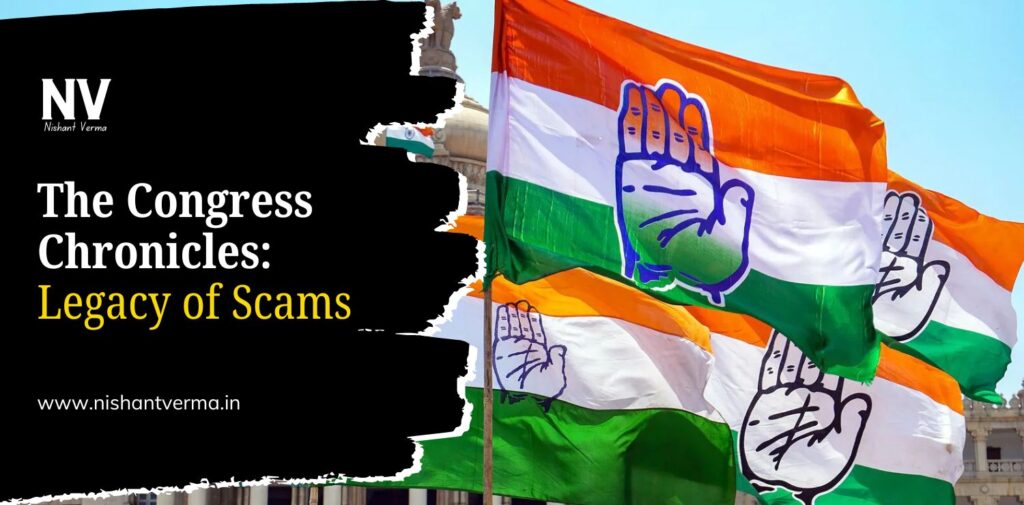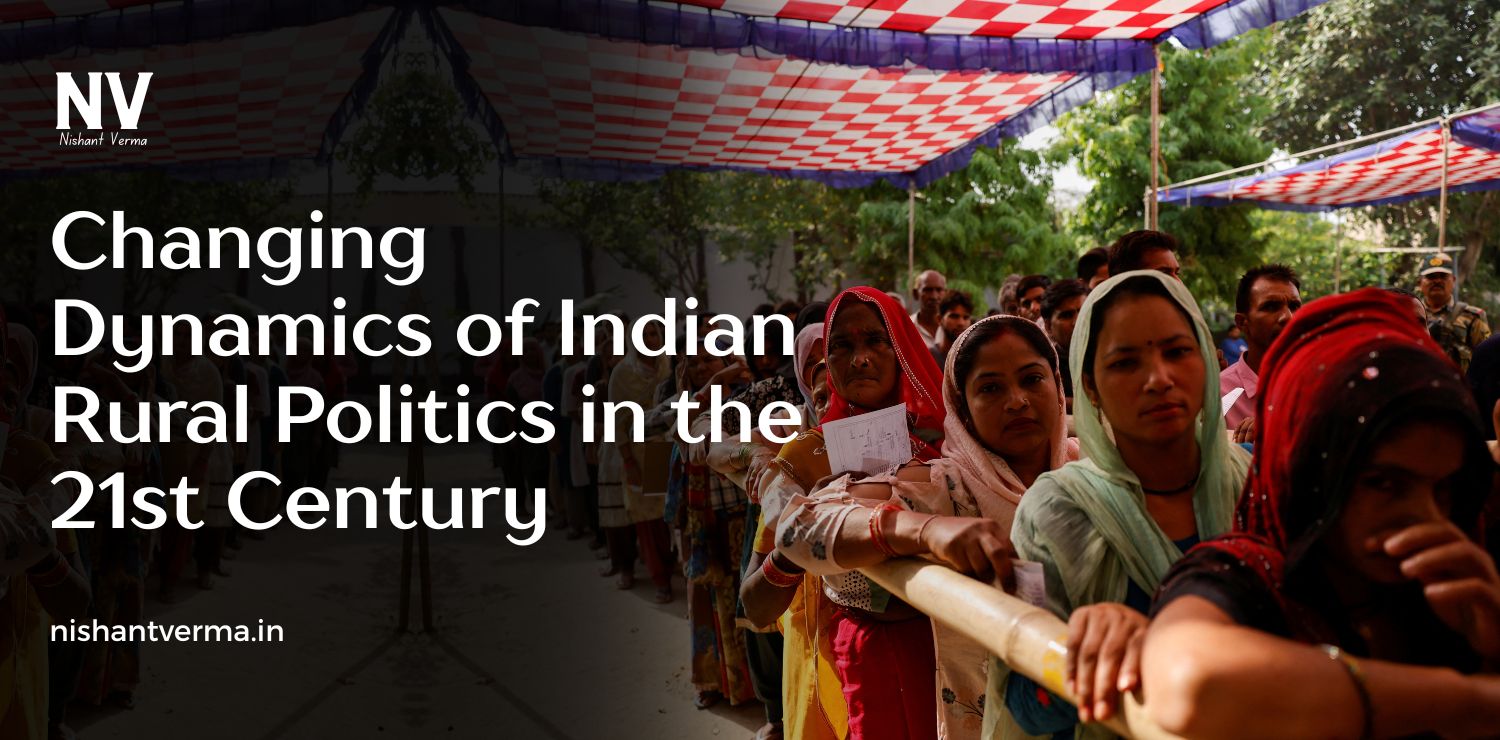Since India gained independence in 1947, the Indian National Congress has been one of the most dominant political forces in the country. However, this dominance has not come without its share of controversies, scandals, and allegations of corruption. The legacy of Congress, starting with the era of Pandit Jawaharlal Nehru and continuing through the decades, reveals a series of actions that have often prioritized personal or party gain over the nation’s well-being. This narrative explores the major controversies associated with Congress governments from Independence till now, shedding light on the darker side of India’s political history.
Pandit Jawaharlal Nehru: A Visionary with Shadows of Controversy
Pandit Jawaharlal Nehru, India’s first Prime Minister, is often celebrated for his role in shaping modern India. Yet, his tenure was not without its questionable decisions that continue to spark debate. One such controversial decision was the handling of the Kashmir issue. In 1948, when Indian forces were close to securing the entire region of Kashmir, Nehru took the matter to the United Nations, resulting in a ceasefire that left a portion of Kashmir under Pakistani control (now known as Pakistan-occupied Kashmir or PoK). This decision has been criticized for compromising India’s territorial integrity and leading to decades of conflict.
Another significant controversy during Nehru’s time was his handling of the Sino-Indian border dispute. Despite intelligence reports and warnings, Nehru’s government failed to anticipate the Chinese aggression in 1962, leading to a humiliating defeat for India. The decision to cede territory to China and the lack of preparedness have raised questions about Nehru’s strategic acumen and his motives behind such actions.
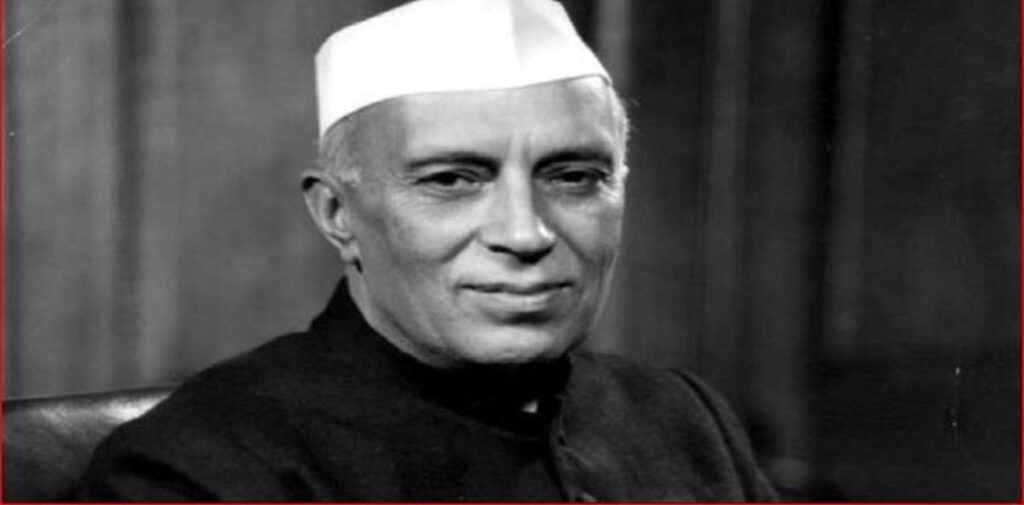
Indira Gandhi: The Iron Lady with a Dark Legacy
Indira Gandhi, Nehru’s daughter, became India’s Prime Minister in 1966 and ruled with an iron fist. Her tenure is marked by significant achievements, but it is also tainted by authoritarianism and controversy. The most infamous of these is the Emergency she declared in 1975. For 21 months, democracy was suspended, civil liberties were curbed, and political opponents were jailed. This period of authoritarian rule is often seen as a move by Indira Gandhi to safeguard her power, following a court ruling that found her election invalid due to electoral malpractice. The Emergency is remembered as a dark chapter in Indian democracy, where the rights of the common people were trampled for personal and political gain.
Another controversial aspect of Indira Gandhi’s rule was the mysterious death of her son, Sanjay Gandhi, in a plane crash in 1980. Sanjay was seen as her political heir and was known for his autocratic style. His death fueled rumors and conspiracy theories, with some suggesting that Indira Gandhi might have played a role due to fears that Sanjay was becoming too powerful. While there is no concrete evidence to support these claims, the secrecy and speculation surrounding the incident have kept it alive in public memory.
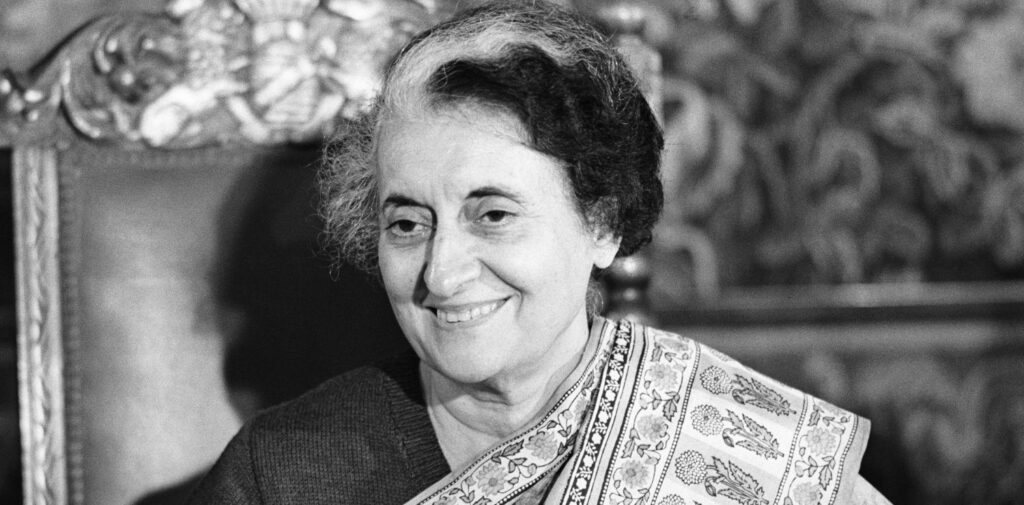
Rajiv Gandhi: A Promise Marred by Scandals
Rajiv Gandhi, who took over after his mother’s assassination in 1984, initially represented a fresh, modern face for India. However, his tenure was marred by several major scandals that overshadowed his early promise. The most notorious of these was the Bofors scandal. In 1986, the Indian government signed a deal with the Swedish arms company Bofors for the supply of howitzers. It was later revealed that bribes were paid to Indian officials, including those close to Rajiv Gandhi, to secure the deal. The Bofors scandal became synonymous with corruption in India and significantly damaged Rajiv Gandhi’s reputation.
Another blot on Rajiv Gandhi’s legacy is the handling of the Bhopal Gas Tragedy in 1984, one of the world’s worst industrial disasters. The Union Carbide plant in Bhopal leaked toxic gas, killing thousands and leaving many more with lifelong health issues. The Indian government’s response was widely criticized as inadequate, and it was alleged that Rajiv Gandhi’s administration helped the company’s CEO, Warren Anderson, escape legal proceedings in India. This episode remains a stark reminder of how corporate interests were placed above the lives of ordinary citizens.
Rajiv Gandhi’s tenure also saw the controversial handling of the Sri Lankan civil war. The Indian Peace Keeping Force (IPKF) was sent to Sri Lanka in 1987, but the mission was poorly planned and executed, leading to heavy casualties and ultimately, failure. This intervention, widely seen as a political blunder, contributed to the animosity that led to Rajiv Gandhi’s assassination by the LTTE in 1991.
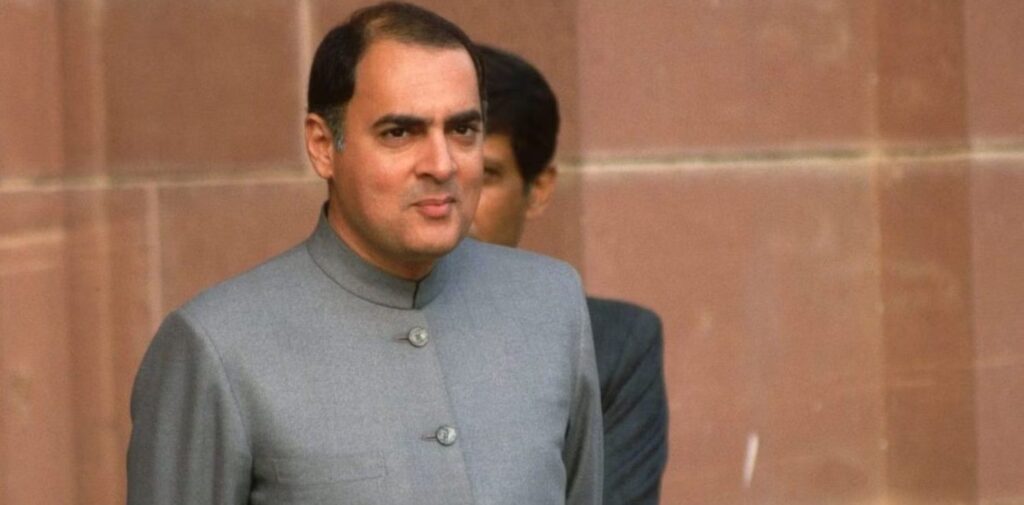
P.V. Narasimha Rao: Reformist or Compromised Leader?
P.V. Narasimha Rao, who became Prime Minister in 1991, is often credited with ushering in economic reforms that liberalized the Indian economy. However, his tenure was also mired in controversy, particularly the stock market scam involving Harshad Mehta. Mehta, a stockbroker, manipulated the stock market, causing huge losses for investors and financial institutions. During the investigation, Mehta alleged that he had paid a bribe of ₹1 crore to Narasimha Rao to get him off the hook. While Rao denied the allegations, the scandal tainted his legacy and raised questions about the integrity of his administration.
Another significant controversy during Rao’s tenure was the Babri Masjid demolition in 1992. Despite intelligence reports warning of potential violence, the government failed to prevent the demolition of the mosque by a mob of kar sevaks. This event led to widespread communal riots across India and is seen as a failure of Rao’s government to uphold law and order, with many accusing him of tacitly allowing the demolition to appease certain political factions.
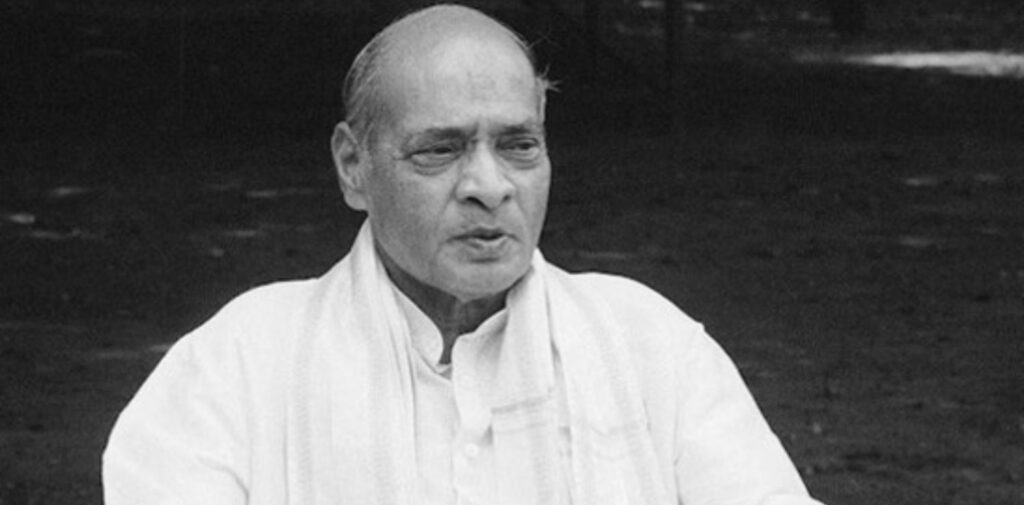
The UPA Era (2004-2014): A Decade of Congress Scams and Economic Mismanagement
The most recent chapter in Congress’ history, the United Progressive Alliance (UPA) government led by Manmohan Singh from 2004 to 2014, is perhaps the most controversial. Despite initial successes in economic growth and social programs, the UPA era became synonymous with corruption on an unprecedented scale. Over 30 major scams were reported during this period, with some of the most significant being:
- 2G Spectrum Scam: The allocation of 2G spectrum licenses in 2008 led to one of India’s biggest corruption scandals. The Comptroller and Auditor General (CAG) estimated a loss of ₹1.76 lakh crore to the exchequer. The scam highlighted how government officials and politicians colluded with corporate entities to rig the auction process, resulting in massive financial losses for the country.
- Coal Allocation Scam: Popularly known as Coalgate, this scandal involved the allocation of coal blocks to private companies without a transparent bidding process, leading to an estimated loss of ₹1.86 lakh crore to the government. The scandal exposed how natural resources were handed over to private entities at throwaway prices, with allegations of kickbacks and corruption at the highest levels.
- Commonwealth Games Scam: The 2010 Commonwealth Games held in Delhi were marred by allegations of large-scale corruption and mismanagement. The estimated cost of the Games ballooned from ₹1,100 crore to over ₹70,000 crore, with significant portions of the funds allegedly siphoned off by officials and contractors. The poor organization and shoddy infrastructure became a national embarrassment.
- Satyam Scam: Although primarily a corporate fraud, the Satyam scam of 2009 raised questions about the regulatory oversight during the UPA era. The company’s founder, Ramalinga Raju, confessed to inflating the company’s financial statements for years, leading to losses for investors and employees. The government’s response to the scam was criticized as slow and inadequate.
- Adarsh Housing Society Scam: This scam involved the illegal allocation of apartments in a prime Mumbai housing society meant for war widows and veterans to politicians, bureaucrats, and military officers. The scandal exposed the deep-rooted nexus between politicians and bureaucrats in exploiting public resources for personal gain.
The UPA government’s tenure was also marked by economic mismanagement, with soaring inflation, policy paralysis, and a deteriorating investment climate. The perception of a government mired in corruption and unable to deliver on economic growth led to widespread public disillusionment and eventually, the Congress party’s defeat in the 2014 general elections.
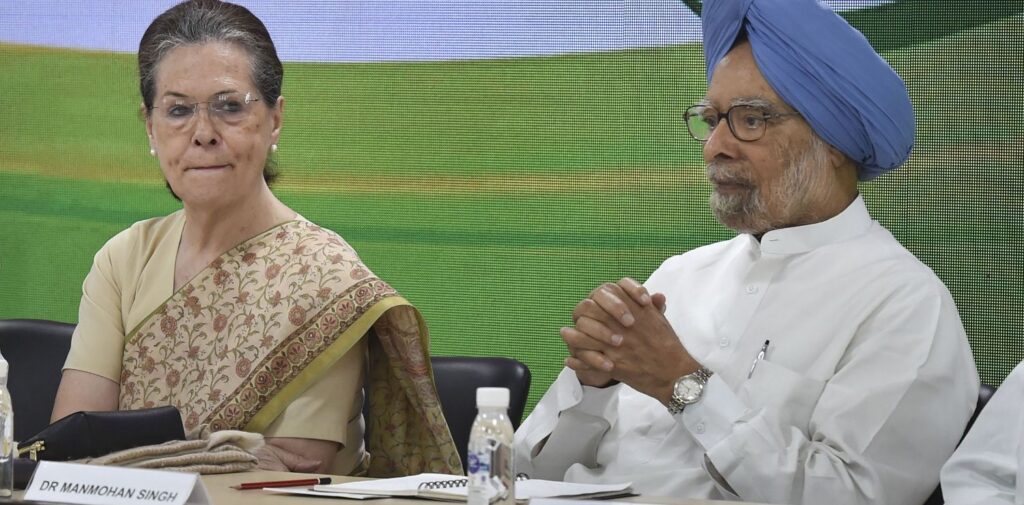
A Legacy of Power and Corruption
The history of the Congress party, from independence till now, is a complex tapestry of achievements and failures. While the party has played a crucial role in shaping modern India, its legacy is also marred by a series of scams, controversies, and decisions that have often prioritized personal or party interests over the nation’s welfare. From Nehru’s questionable handling of the Kashmir and China issues to the authoritarianism of Indira Gandhi, the corruption scandals under Rajiv Gandhi and Narasimha Rao, and the UPA’s decade of corruption, the Congress party’s history is a reminder of how power can be misused.
For a country that aspires to greatness, it is essential to learn from this history and ensure that those in power are held accountable. The Congress party’s legacy serves as a cautionary tale of how unchecked power and corruption can undermine a nation’s progress and betray the trust of its people. As India moves forward, it is imperative that future leaders prioritize transparency, integrity, and the greater good over personal and political gain.

